British tourists killed as India train derails
- Published
Tourists described the moment the train came off the tracks saying they heard "shuddering" and "were sent flying"
Two British tourists were killed and a number of others left injured after a train derailed in northern India.
The chartered four-carriage train was carrying a group of 37 Britons on the picturesque Kalka to Shimla mountain railway line, which is a Unesco world heritage site and tourist attraction.
Three carriages derailed after leaving Kalka railway station at 13:20 local time, a rail official told the BBC.
Local police said the two Britons who died were both women in their 60s.
Confirming the deaths of two British nationals, Foreign Office minister for Asia Hugo Swire said he was "deeply saddened", adding: "My thoughts are with their family and friends at this difficult time."
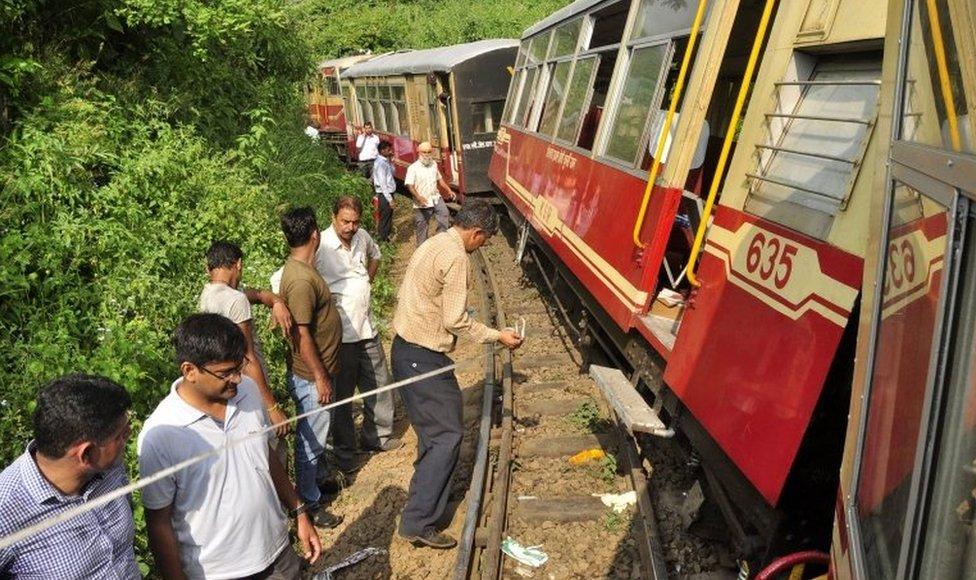
The aftermath of the incident, which happened at about 13:20 local time on Saturday
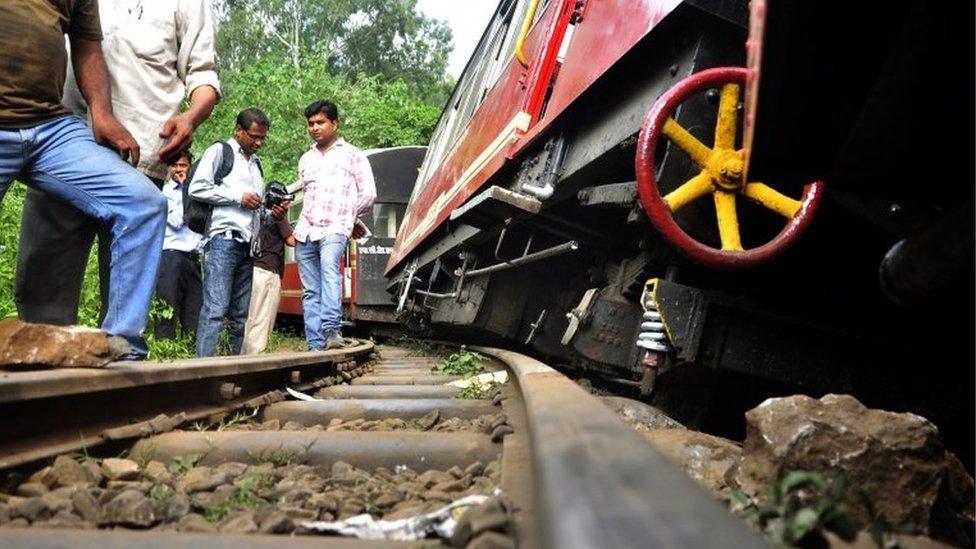
The train had been travelling to the Indian Himalayan town of Shimla when it derailed
The 36 passengers and a tour manager were on day three of a 13-day trip organised by York-based company Great Rail Journeys, which takes about 2,500 people to India annually.
Chief executive Peter Liney said: "Tragically, we can confirm that two passengers died in the accident.
"We are working with Foreign and Commonwealth Office to assist their relatives in travelling to India as soon as possible."
'Support families'
He said a number of others were injured. Two passengers and the tour manager would stay in hospital overnight, but he added that their injuries were not believed to be life threatening. All other passengers had been taken to a hotel.
Senior staff had been sent to the site to support those involved, he said.
"Our absolute priority is to support and help the families of those people who have so tragically died, along with those in hospital in India and at the hotel."
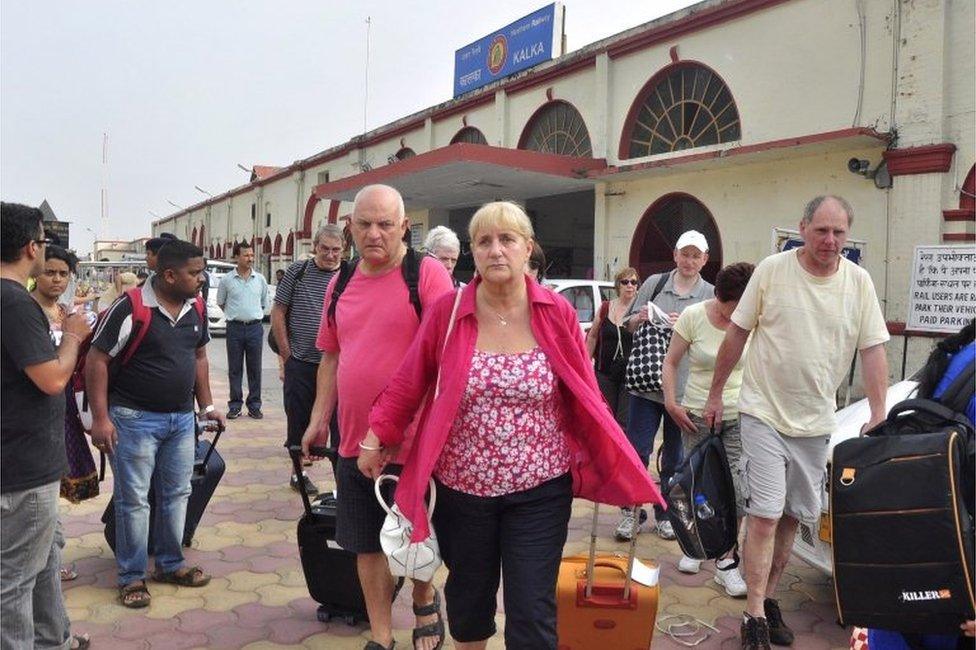
Passengers leave Kalka railway station after the incident
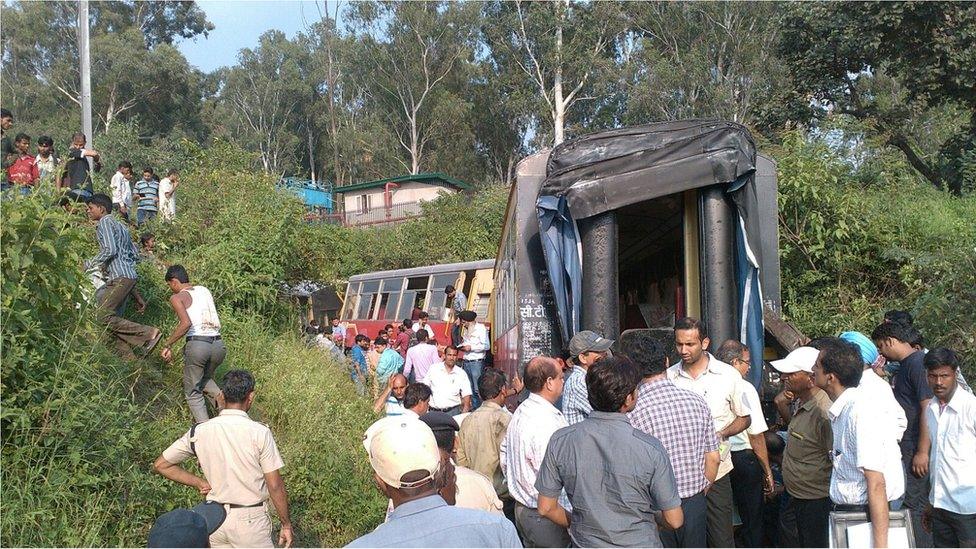
Thirty-seven Britons were on board the specially-chartered train
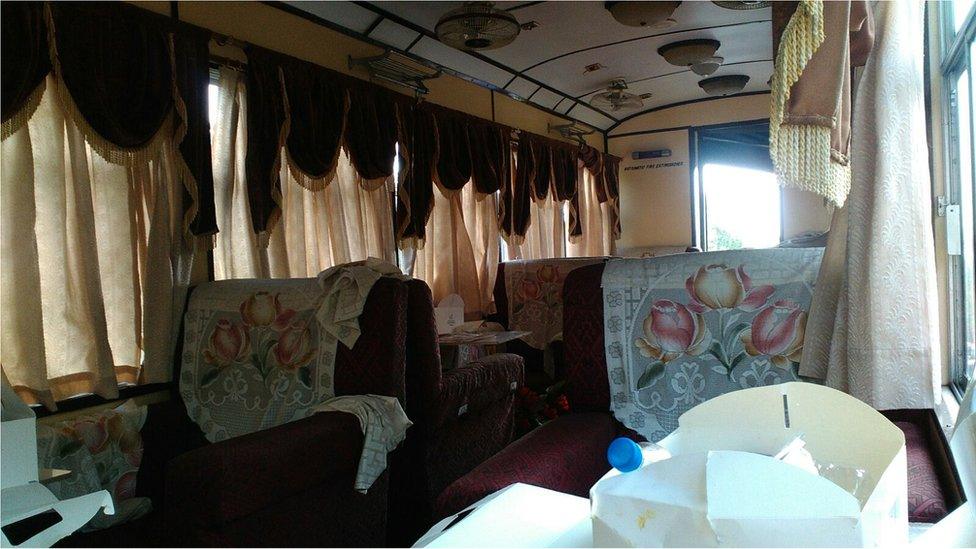
The interior of one of the train carriages
Senior police officer Zahoor Zaidi said the two Britons killed were both women in their 60s, adding nine people were injured, including six Britons.
The train had been rounding a curve when the coaches derailed, Neeraj Sharma, a railway official, told the AP news agency.
'Thrown across carriage'
One passenger, Peter Lloyd, 69, from Ormskirk, Lancashire, was with his wife in a carriage when the train derailed.
"The journey had just got going and was about 3km along," he told the BBC.
"It went around a really sharp left bend, going too fast. I got thrown across the carriage... when the derailment happened. There was no panic, but stunned silence until we realised how bad things were.
"We were stuck in a wooded area for many hours. A lady had fallen out of the door to the grass embankment. Our tour guide was in a bad way.
"We are now safe in a hotel in Chandigarh [nearby city]. We are still awaiting contact from Great Rail Journeys. I'm very disappointed. The locals were fantastic including the local guide Raj, who was on the train.
"I am still in shock but happy to be alive."
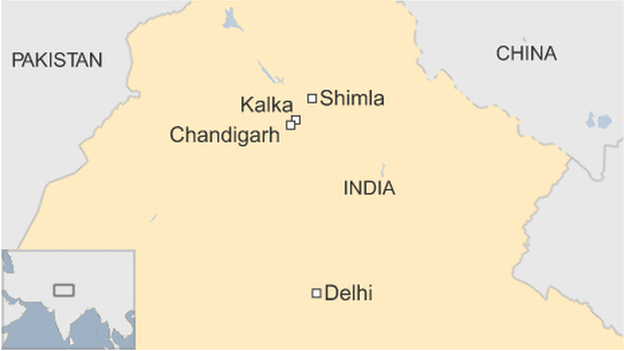
Dinesh Kumar, divisional railway manager of Northern Railways, told the Times of India the cause of the incident was not immediately clear, external and an inquiry had been ordered.
Mr Swire said teams from the British High Commission in New Delhi and Deputy High Commission in the city of Chandigarh were on their way to the area to help those affected.
The 96km narrow-gauge Kalka-Shimla Railway, often called the toy train line, was opened in 1903 to connect Shimla, the summer capital of British India, with the northern plains.
The railway climbs more than 4,000ft through the Himalayan foothills, and is famous for its many bridges, tunnels and panoramic views.